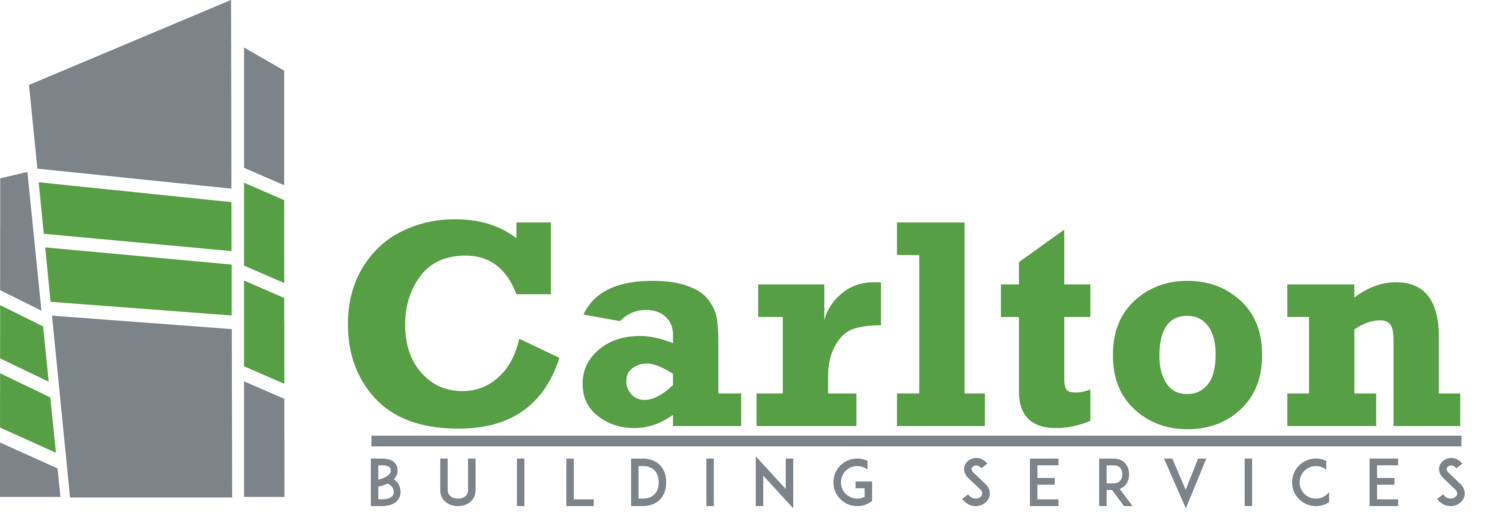Commercial construction projects span weeks, if not months, and often involve a lot of back and forth with your contractor. To ensure the project is effective, on time, and on budget, you want to maintain a good rapport with a contractor and their team.
To do so, there are things you should say – and ones you shouldn’t. The seven below are prime examples of what not to say to a commercial contractor in Virginia.
First, what is a commercial contractor in Virginia?
A commercial contractor in Virginia is someone who works with business owners, commercial property owners, and multifamily unit owners on construction projects. These can be new builds, major renovations, or smaller repairs.
Within commercial construction, there are many types of contractor specialties. At Carlton Building Services, for example, we specialize in renovations, repairs, maintenance, remodels, and build-outs, but don’t do new commercial builds.
For more on the different types of commercial contractors, and to discover which one you need, click here.
What not to say to a commercial contractor in Virginia
Working with a commercial contractor is a lengthy process, and it behooves you to develop a solid relationship before, during, and after the project. To do so, there are a few things you shouldn’t say, either because it could frustrate a contractor, waste your time, or both.
Can you renovate my home?
While most commercial contractors are qualified to renovate your home, that is not the line of business they are in. Being a contractor includes developing a network of subcontractors, training on-site project managers to oversee commercial projects, and understanding the nuances of commercial building permits. They develop expertise in the type of project they complete and are pros at assembling the right team for that project type.
As a customer, you want to utilize these benefits and expertise for the projects they are intended for: commercial buildings. If you’re still confused about residential vs commercial construction, we have a guide that explains both.
This other contractor offered a lower price
In construction, you get what you pay for. If you want to go for a contractor who offers a lower estimate, do it…just remember that often, these are lowball estimates and you’ll end up paying more for unforeseen expenses down the line. Contractors with lower estimates often don’t put in adequate effort, quality workmanship, or supervision, meaning they skip steps and perform worse work.
For many companies, going with a lower estimate means hiring a more expensive contractor to clean up this rushed, poorly completed work.
When searching for a contractor, you should ask for estimates from multiple candidates. You should ensure these commercial construction contracts have specific elements, like a general conditions clause, even if it “raises” the initial price of the project.
Can you work on my project in North Carolina?
Or insert any other state here.
While some contractors are licensed to work in other states, most specialize in one. Even within Virginia, construction codes and building permits change from city to city. The process for Charlotteville isn’t the same as the one for Virginia Beach.
Due to these nuances, it’s best to select a contractor who understands the laws and regulations in your area, not someone who claims to be efficient at working in states where they don’t understand the permit regulations and construction codes.
I’ll apply for the building permit alone
Ok, so very few customers actually say this to their contractor, but they sometimes apply for the permit without consulting their contractor first, and that’s basically the same thing.
Under no circumstances do we recommend this.
Your contractor is an expert in commercial renovations or remodels, including how the process to get a permit for your project works. If you’ve chosen a high-quality, local contractor, you should invite them into the process to apply for a Virginia building permit.
If you’re lucky, they will complete most of the permit application for you and without taking up too much of your time.
Can we shorten this deadline?
A good contractor is adept at setting manageable timelines for their team and subcontractors. When a customer asks to shorten a deadline, it can create undue stress and often isn’t a possibility.
The one exception to this is if you have a tight deadline (for example a store opening) and are willing to pay extra, if needed, to get the project done on time.
That you’re comfortable with a budget when you’re not
Talking about money with a contractor isn’t an easy topic, but it is an important one. When negotiating with a contractor, voice any concerns you have about the budget. Often, a contractor will help find solutions that fit a lower price point.
When starting a renovation, McCormick Law dreamed of having floor-to-ceiling windows to look like a modern law firm. Unfortunately, that vision wasn’t within their budget. Because they voiced this price discomfort to our team, we were able to work with them on finding a solution that fit within a smaller budget and gave the same modern law firm look.
I don’t need a written agreement
This isn’t one we hear often, but it might be the worst thing you can say to a contractor. You should always have a written contract that defines the scope of work, project estimates, and process for modifications to scope, budget, or both.
If a contractor doesn’t want to sign a written agreement, it’s probably a red flag and an indication that you should find a different contractor for your commercial renovation in Virginia.
What to say to a contractor
Now that we’ve discussed what not to say, what should you discuss with your contractor? Ideally, you should have an open communication style, and we recommend assessing your comfort in discussing money, timelines, and other tricky situations with a potential contractor before hiring them.
Whether before or after agreeing to work with a contractor, these are some great things to say to a commercial contractor:
- Voice anything you’re unsure about or uncomfortable with in a calm, collective way
- Ask for explanations when you don’t understand what is going on
- Talk openly about money AND the future vision of your business
- Clarify any questions on the timeline that you have
- Praise them when work is well done
Working with a contractor is like any other professional relationship. There should be good rapport with clarity and comfort throughout the commercial renovation in Virginia.


